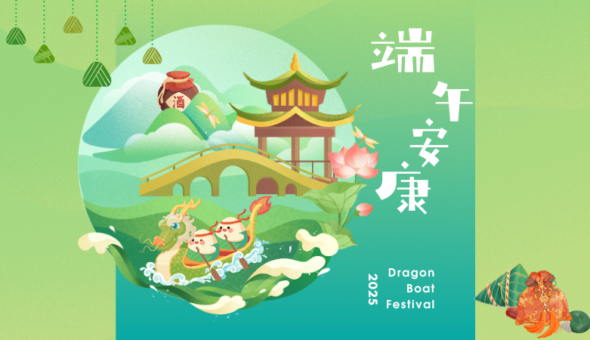On 10 February 2024, we will enter the Year of the Dragon, or 龙年 (lóng nián) in Chinese. But are dragons and 龙 (lóng) really the same kind of creatures?
Of the 12 generic animal names representing 'stems-and-branches' Chinese calendrical system, 龙 (lóng, or 龍 in traditional Chinese characters) is the most difficult to find a counterpart in the Western world. 龙 (lóng) is commonly translated as “dragon” in English, but when you read about 龙 (lóng) and dragons in the literature you’ll quickly realise that while both depict mythical and powerful creatures, their physical appearances and the symbolic meanings behind them can vary quite a bit!
The Western dragon: a fire-breathing adversary
In Western mythology and literature, dragons are often portrayed as formidable foes, embodying chaos and destruction. These dragons often have wings and four legs, and they breathe fire and hoard treasure.
From the dragons in “Beowulf” and “Saint George and the Dragon”, to Smaug in Tolkien's "The Hobbit”, these fire-breathing creatures are all menacing adversaries to be conquered. The Western dragon is a symbol of the unknown, representing the challenges and fears that must be overcome.
We can find the negative connotations of dragons in the following phrases:
- Here be dragons: A phrase used to indicate a dangerous or unexplored area.
- Tickle the dragon’s tail: To do something that inadvertently leads to trouble.
- Sow dragon’s teeth: To create a situation that will lead to conflict or disaster.
The majestic and benevolent 龙 Lóng
First let’s call the Chinese dragon by its proper name, 龙 (lóng).
龙 (lóng) holds a revered and benevolent status in Chinese culture. Far from a fearsome creature, the Chinese dragon is a symbol of power, prosperity, and auspiciousness.
Chinese dragons are typically depicted as long, wingless beings with antler-like horns.
One of the earliest dragon legends is the story of 黄帝 (Huángdì, the Yellow Thearch or the emperor of the yellow earth), who reigned China around 2600 BCE. Upon his death, 黄帝 (Huángdì) was visited by a dragon, who took him to the heavens, where he’s from originally.
Throughout Chinese history, emperors likened themselves to dragons and used the dragon’s image in imperial regalia, throne and architecture to reinforce their divine right to govern. The imperial robe is called 龙袍 (lóng páo, lit. dragon robe), the imperial throne 龙椅 (lóng yǐ, lit. dragon chair), and so on.
In another legend, the great Chinese philosopher and teacher, 孔子 (Kǒngzǐ or Confucius), recounted a rare encounter with 老子 (Lǎozǐ), likening it to meeting a mythical dragon. Laozi's philosophy, as documented in the 道德经 (Dàodé jīng) and considered the cornerstone of Taoism, holds profound influence over various aspects of people’s lives. Confucius was so deeply in awe and reverence of Laozi that he remained silent for three days after their meeting.
Many Chinese idioms containing the word 龙 (lóng) convey its positive connotation, for example:
- 望子成龙 (wàng zǐ chéng lóng): lit. "Hoping one's child to become a dragon", expresses a parent's high hopes for their children's success.
- 龙马精神 (lóng mǎ jīng shén): lit. "Dragon and horse spirit", refers to someone who’s aged, but still full of energy and vitality.
- 藏龙卧虎 (cáng lóng wò hǔ): lit. "Hidden dragon, crouching tiger”, refers to hidden talents or extraordinary individuals who are not easily noticeable but possess remarkable skills or potential.
- 龙飞凤舞 (lóng fēi fèng wǔ): lit. "Dragon soaring, phoenix dancing", describes a scene of grandeur and vitality, often used to depict a flourishing style while performing Chinese calligraphy.
Do you know more dragon or 龙 (lóng)-related phrases or idioms? Please share them in the comments.
Celebrating the Year of 龙 (lóng)!
On 8 February, the Skills Centre will be hosting a Chinese film screening event in the University Hall. Before the film, staff and students will be able to try Chinese painting and calligraphy.
Please come and join us from 5:30 pm – everyone welcome!
Wishing you 龙行龘龘 (lóng xíng dá dá)! May the year of 龙 (lóng) bring prosperity to you all!
Respond



